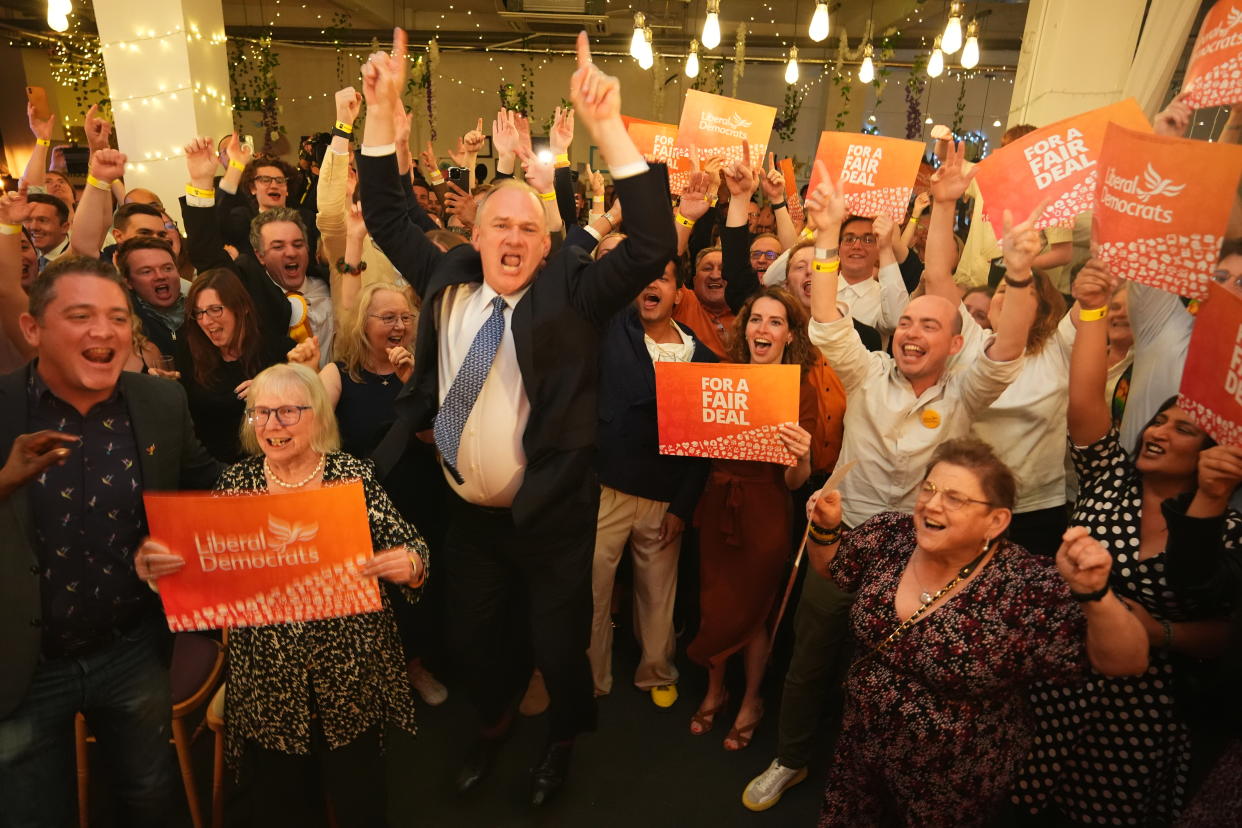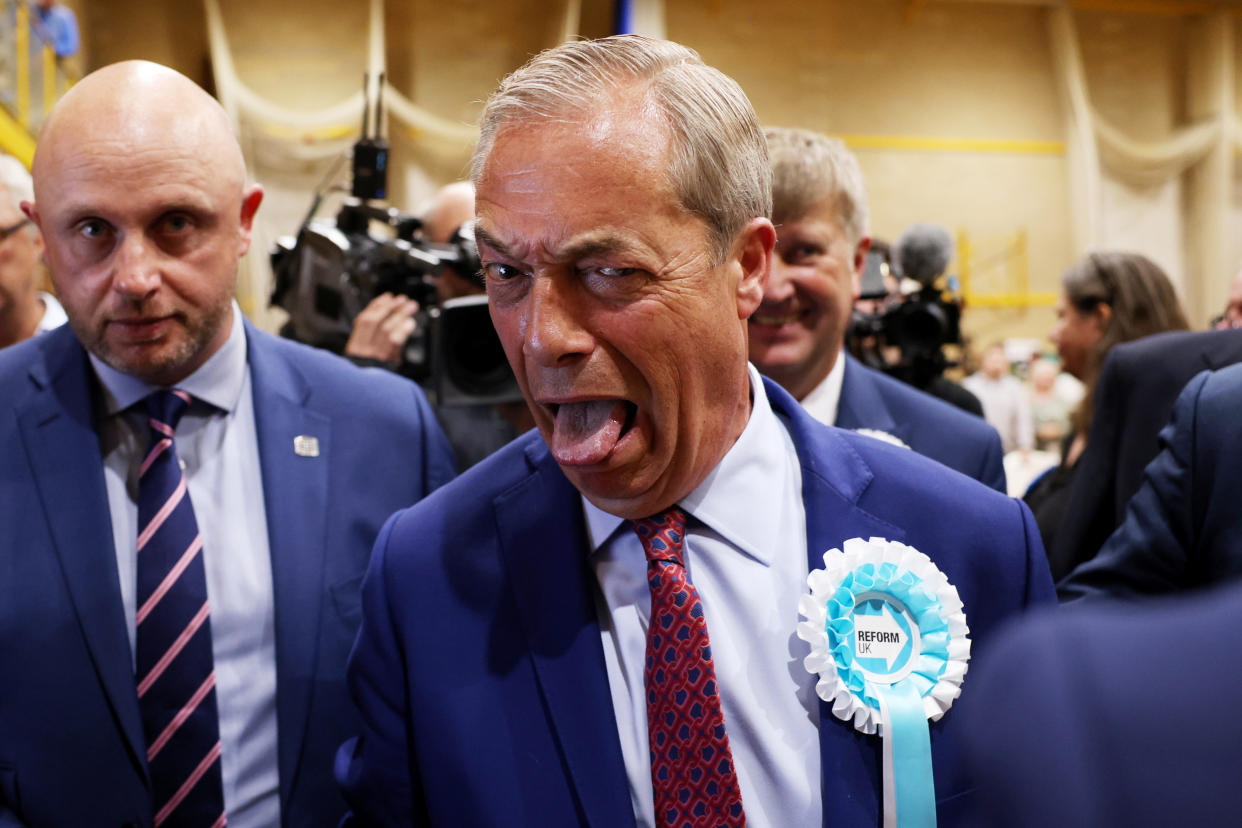How many seats did Reform UK win - and why they don't match its vote share?
Watch: Nigel Farage calls for change to voting system
“Believe you me, the appetite for electoral reform is going to be enormous after this election.” Those were the words of Reform UK leader Nigel Farage after finally winning a parliamentary seat on his eighth attempt.
Farage has seen his party win dozens fewer seats than the Liberal Democrats, despite winning a higher share of the national vote.
The Lib Dems secured 12% of the vote and 72 seats and Reform took 14%, but only five seats. The Green Party also emerged with four MPs, despite having 7% of the total vote.

On Saturday, Farage said: “We will do what we can with five in parliament, what I will do for certain is provide real opposition in the country.
“And my aim and ambition is to build a mass movement for real change, leading up to the next sets of elections.”
He added: “The fact that for every Reform MP there are 800,000 voters, and for every Labour MP there are 30,000 voters suggests something is very badly, fundamentally wrong.”
It's certainly the case that many people vote tactically – one poll prior to 4 July suggested as many as one in five voters were ready to do just that. Many others also choose to cast a protest vote.
But the contrast remains stark – if Reform UK has a higher share of the popular vote than the Lib Dems, why did it win so few seats by comparison?
How many seats did the Lib Dems win?

The Liberal Democrats have 72 seats, giving them approximately 12% of the overall vote.
It makes Sir Ed Davey's party the third largest in parliament and represents a significant improvement on their 2019 election result, when they returned with just 11 MPs.
How many seats did Reform UK win?
Reform UK won five seats.
Alongside Nigel Farage's victory in Clacton, Essex, the new party picked up seats in Ashfield in the East Midlands, where the Conservatives were pushed into fourth, Great Yarmouth in East Anglia, Boston & Skegness and South Basildon & East Thurrock.
What is 'first past the post' and why does it lead to results like this?
The reason for the apparent disparity if the UK's first past the post (FPTP) voting system – in which the candidate with the largest number of votes in their constituency is elected.
It’s a simple premise, but one that benefits Labour and the Conservatives.
According to the Electoral Reform Society, which is against FPTP, this system leads to a situation where “even if millions of voters support the same party, if they are thinly spread out across the UK they may only get the largest number of votes in a couple of these contests – so only win a few MPs".

“Tens of thousands of voters supporting a different party, but who live near each other, could end up with more MPs. This means the number of MPs a party has in parliament rarely matches their popularity with the public.”
Farage already knows this well. As the leader of Ukip in the 2015 election, he saw his party win 12.6% of the nationwide vote and one seat. The Liberal Democrats won 7.9% of the vote and eight seats.
Those who defend FPTP point to the fact it gives a clear choice for voters between two main parties and also means there is a clearly defined opposition party. It also is more likely to exclude extremist parties from parliamentary representation as well as giving popular independent candidates the chance to be elected.
What is proportional representation?
Those who argue that FPTP is unfair propose a different voting system.
Proportional representation, as defined by the UK parliament, is an electoral system "in which the distribution of seats corresponds closely with the proportion of the total votes cast for each party. For example, if a party gained 40% of the total votes, a perfectly proportional system would allow them to gain 40% of the seats."
This differs from the first past the post system, as set out above, in which a relatively high vote share rarely corresponds with increased seats for the smaller parties.
Both Reform UK and the Lib Dems support proportional representation.
The Lib Dems made it part of their manifesto, with the party saying it would introduce the single transferrable vote method, a form of proportional representation which allows electors to rank their preference of candidates on the ballot.

In 2019, the Lib Dems won 11.5% of the vote but only 11 – 1.7% – of the 650 seats. FPTP worked out better for the party this time round, winning 62 more seats with just a 0.8% increase in the vote share.
But leader Sir Ed Davey doubled down on his electoral reform commitment on Friday, telling the BBC: "The British political system is still broken and electoral reform is a key part of that."
The party previously sought to change the UK’s voting system while in the coalition government under then-leader Nick Clegg, but voters rejected the plan in a 2011 referendum.
Farage himself has even pledged to work with the Lib Dems on the matter.
In his Clacton victory speech on Friday, he said: “I was Nigel Farage MEP for 21 years, I won two national elections under proportional representation.
“Believe you me, the appetite for electoral reform is going to be enormous after this election, and that’s one of the many things that I’m going to be up front, out there, campaigning for.
"I might even work with the Lib Dems on that.”


